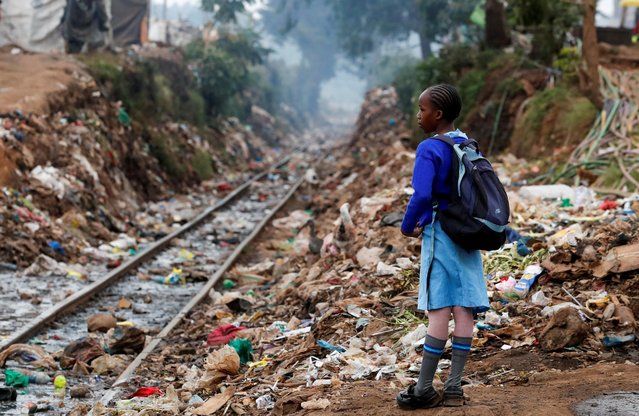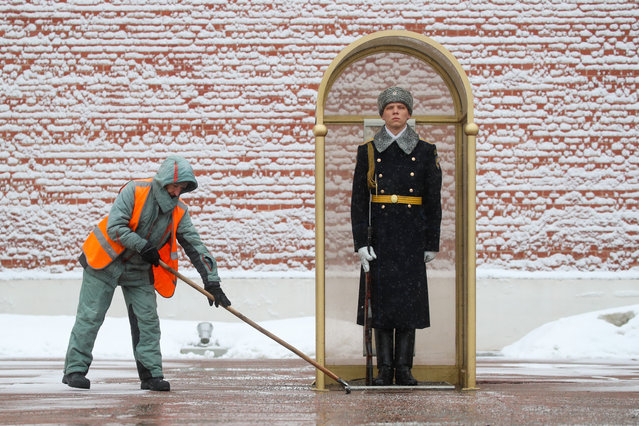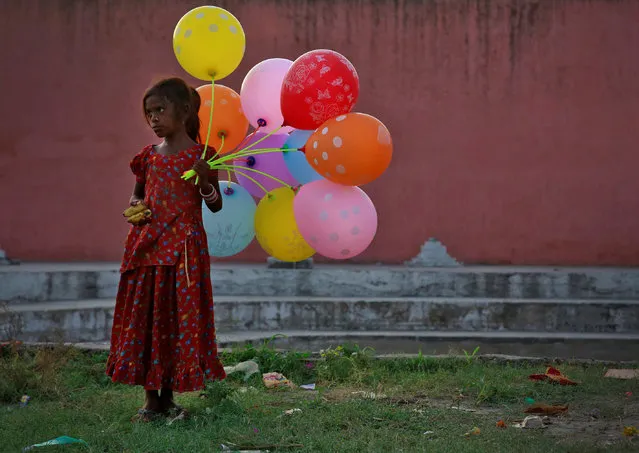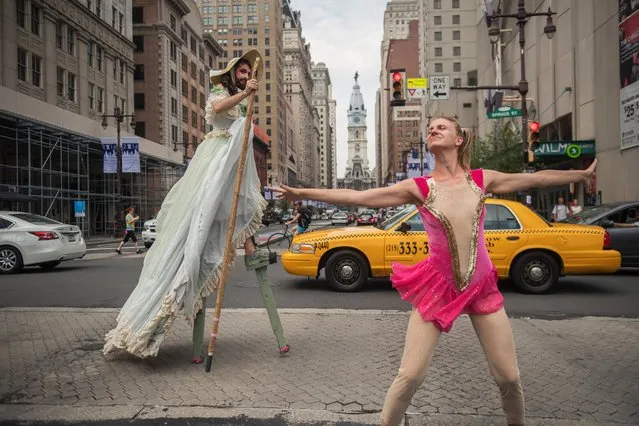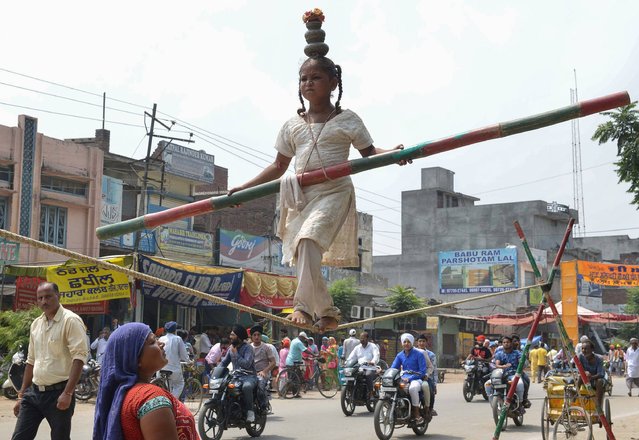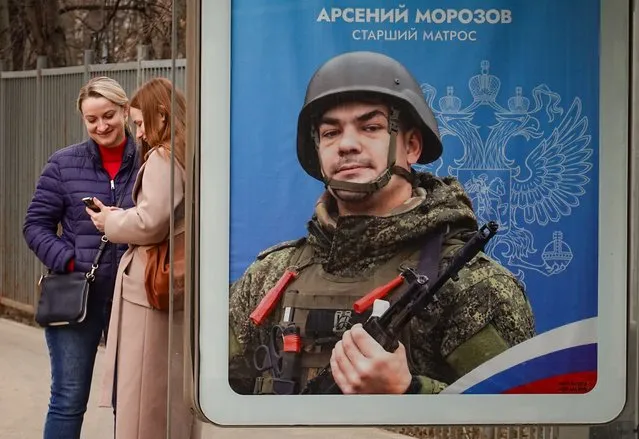
Women stand at a bus stop next to an advertisement for military conscription showing a Russian soldier, in Moscow, Russia, 08 April 2024. According to Russian Defence Minister Sergei Shoigu, almost 540 thousand people entered military service under contract in the Russian Armed Forces in 2023, and about 50 thousand since the beginning of 2024. (Photo by Yuri Kochetkov/EPA/EFE)
15 Apr 2024 03:57:00,post received
0 comments


